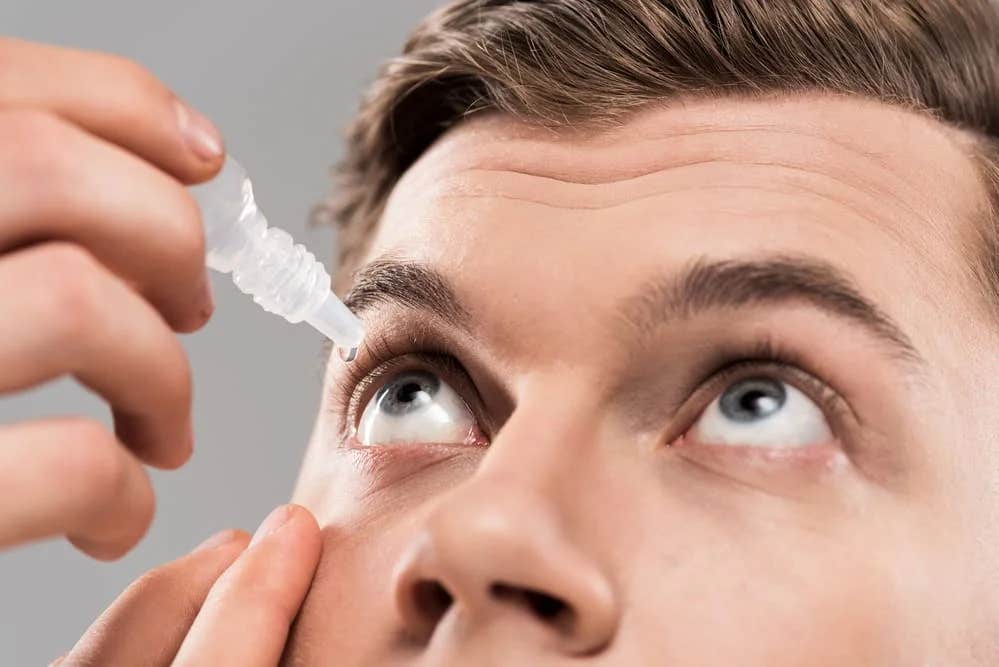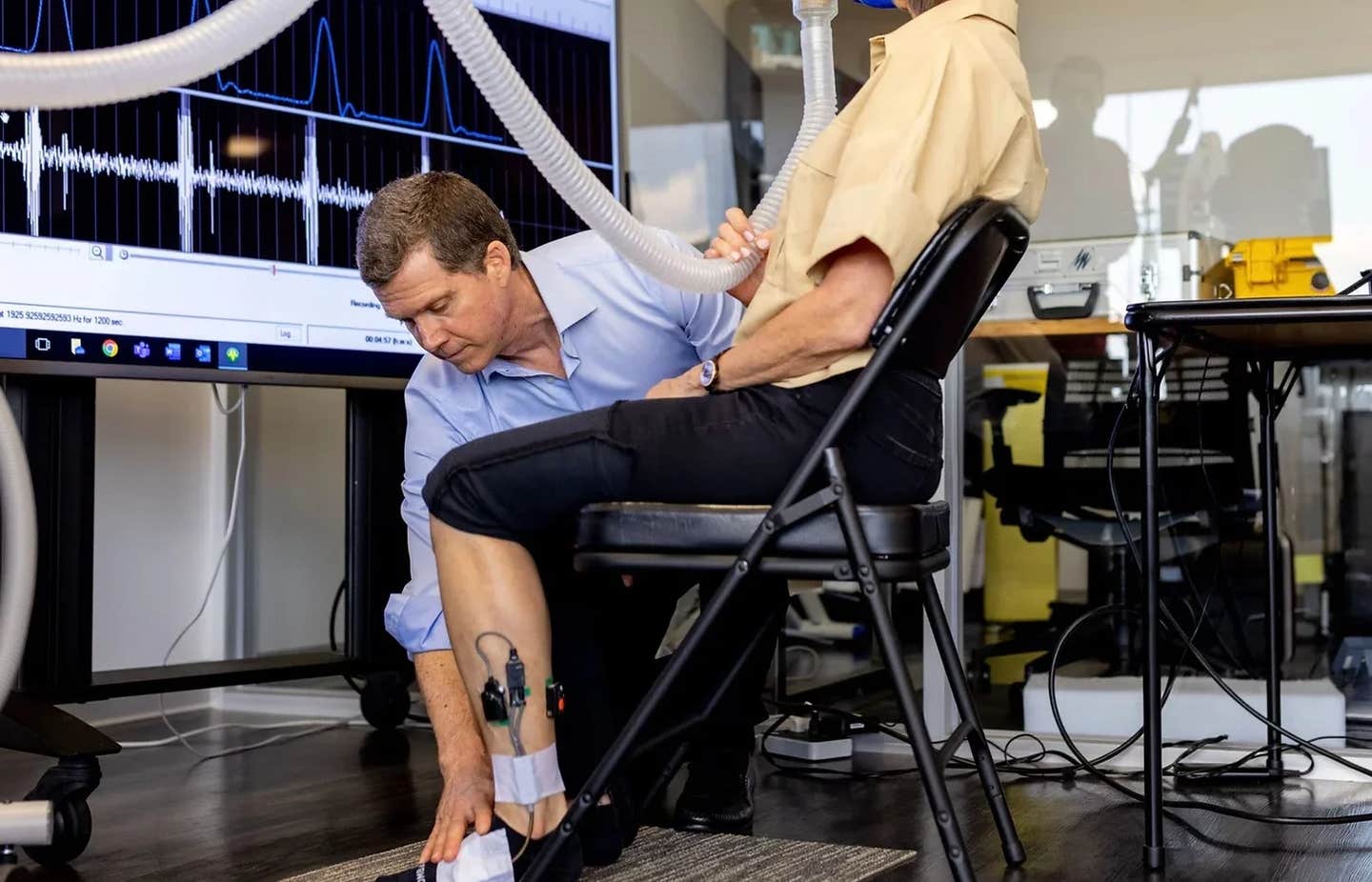FDA-approved eye drops can replace reading glasses for people with blurry vision
FDA approval marks a significant advancement in treating presbyopia, a common age-related condition that causes blurry vision

The drops are meant for people dealing with Presbyopia, an age-related eye issue that causes blurry vision. (CREDIT: CC BY-SA 3.0)
The recent approval of Vuity by the Food and Drug Administration marks a significant advancement in treating presbyopia, a common age-related condition that causes blurry vision. Local ophthalmologists believe this new eye drop could be a game-changer for those struggling with the inconvenience of reading glasses.
Presbyopia is a progressive eye condition that typically begins to affect people after the age of 40. It occurs when the lens of the eye loses its flexibility, making it difficult to focus on close objects. As a result, everyday tasks like reading a book, looking at your phone, or working on a computer can become challenging. Traditionally, reading glasses have been the go-to solution for managing presbyopia, but Vuity offers a new alternative.
Dr. Ella Faktorovich, an ophthalmologist at Pacific Vision Institute, emphasizes the impact Vuity could have. "We all know that reading glasses are annoying," she says. "Within 15 minutes of using these drops, you can see your computer, you can see your phone, so you can really improve your range of vision. I think it is huge."
Vuity works by targeting the eye's focusing mechanism. The drops cause the pupils to shrink, which enhances the eye's ability to focus on close objects. Dr. Faktorovich notes that while other similar medications are still in trial phases, Vuity is the first to receive FDA approval. "It is pretty remarkable," she adds.
For individuals like Lovester Law, who spends hours looking at a screen while writing a book, the promise of Vuity is particularly appealing. "After I read too much or write too long, I just have to close my eyes and relax," he says. "If we live long enough, our eyes are going to age—they are not going to be like they used to be."
If you’re interested in trying Vuity, you’ll need to consult an eye doctor. The drops are available only by prescription, so it’s important to have a professional evaluation to determine if they’re right for you. This breakthrough could be a catalyst for future eye treatments, according to doctors at UCSF.
Julie Schallhorn, Associate Professor of Ophthalmology at UCSF, is optimistic about the future of eye care. "The data we have shows that it really works," she says. "It is an exciting time to be in this field, and an exciting time for our patients."
The Science Behind Vuity: Clinical Trials and Approval
The FDA’s approval of Vuity is based on data from two pivotal Phase 3 clinical studies, known as GEMINI 1 and GEMINI 2. These studies were designed to evaluate the efficacy, safety, and tolerability of Vuity in treating presbyopia. A total of 750 participants between the ages of 40 and 55 were enrolled in the studies and were randomly assigned to receive either Vuity or a placebo.
Related News
Participants were instructed to administer one drop of Vuity or the placebo once daily in each eye. The primary goal of the studies was to determine if participants treated with Vuity could gain three lines (or the ability to read three additional lines on a reading chart) or more in low light, high contrast conditions, without losing more than one line (or five letters) of distance vision by day 30, hour 3. Both studies met their primary endpoints, showing statistically significant improvements in vision for those treated with Vuity compared to the placebo group.
Importantly, no serious adverse events were reported in the participants treated with Vuity. The most common side effects, occurring in more than 5% of participants, were mild and included headaches and eye redness.
Understanding Presbyopia: What You Need to Know
Presbyopia is a condition that affects nearly everyone as they age. It’s characterized by a gradual loss of the eye’s ability to focus on close objects, a process that typically begins after age 40. In a healthy, non-presbyopic eye, the clear lens behind the iris can change shape easily, allowing the eye to focus on objects both near and far. However, as the lens ages, it hardens and loses its flexibility, making it difficult to focus on near objects.
You may first notice symptoms of presbyopia when you find yourself holding reading material farther away to make the text clearer. Blurred vision at normal reading distances, eyestrain, and headaches after reading or doing close-up work are also common signs. These symptoms may become more pronounced when you’re tired or in dim lighting.
If you’re experiencing blurry close-up vision that interferes with daily activities like reading or working, it’s important to see an eye doctor. An ophthalmologist or optometrist can diagnose presbyopia and discuss treatment options with you, including whether Vuity might be a suitable solution.
In some cases, sudden changes in vision require immediate medical attention. If you experience a sudden loss of vision in one eye, sudden hazy or blurred vision, flashes of light, black spots, halos around lights, or double vision, seek emergency care right away.
The Future of Vision Care
Vuity represents a significant step forward in the treatment of presbyopia, offering a new option for those who are tired of relying on reading glasses. While it’s not a cure, it provides a convenient alternative that can improve your quality of life. As research continues and more treatments are developed, the future of vision care looks promising, with the potential for even more effective solutions on the horizon.
For now, Vuity offers a new way to manage the effects of aging on your eyes, allowing you to enjoy clearer vision without the constant need for glasses. If presbyopia is affecting your life, it may be worth discussing this innovative treatment with your eye doctor.
Note: Materials provided above by The Brighter Side of News. Content may be edited for style and length.
Like these kind of feel good stories? Get The Brighter Side of News' newsletter.
Joseph Shavit
Head Science News Writer | Communicating Innovation & Discovery
Based in Los Angeles, Joseph Shavit is an accomplished science journalist, head science news writer and co-founder at The Brighter Side of News, where he translates cutting-edge discoveries into compelling stories for a broad audience. With a strong background spanning science, business, product management, media leadership, and entrepreneurship, Joseph brings a unique perspective to science communication. His expertise allows him to uncover the intersection of technological advancements and market potential, shedding light on how groundbreaking research evolves into transformative products and industries.



